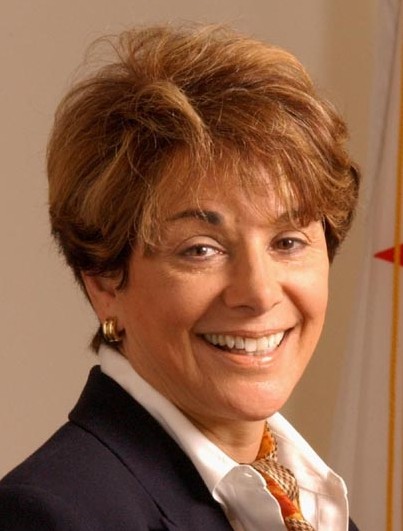 Stop the Cap! has developed a sample e-mail message Georgia residents can use to petition the state legislature to vote NO on H.B. 282, the latest Big Telecom corporate welfare bill to kill competition from publicly-owned broadband networks. With thanks to Mark Creekmore, one of many rural Georgians suffering with DSL “service” from Windstream Communications, we have jointly created this letter to illustrate the folly of this bad bill. We may need to send this to members of the state Senate as well.
Stop the Cap! has developed a sample e-mail message Georgia residents can use to petition the state legislature to vote NO on H.B. 282, the latest Big Telecom corporate welfare bill to kill competition from publicly-owned broadband networks. With thanks to Mark Creekmore, one of many rural Georgians suffering with DSL “service” from Windstream Communications, we have jointly created this letter to illustrate the folly of this bad bill. We may need to send this to members of the state Senate as well.
We realize many of you are served by AT&T, Comcast, or other rural providers, so this letter should be tailored to include the horror stories that you have experienced with your own provider. Make sure you change the relevant sections, including references to your local town’s provider (things that should be changed in your letter are highlighted in blue below) before sending your e-mail to House members today:
Dear Rep. -or- Sen. [insert name]
I am writing to tell you that I do not support H.B. 282 — the Broadband Municipalities Act, and neither should you.
This proposed legislation is a solution in search of a problem. No community I know of gets interested in entering the broadband business on a whim. But when you live in a rural area served by a single provider that delivers poor service, as I do, it becomes understandable why some communities seek a public broadband solution as a last resort.
At its core, this is a bill designed to protect the broadband status quo at the cost of Georgia’s economic development and its citizens’ need for quality broadband service.
[Share several sentences here detailing the problems you have with your provider.]
Georgia has a long way to go to meet the broadband speeds available in cities like Chattanooga, Tenn. That city’s municipal power company offers 1,000Mbps service to residents that cannot buy those speeds from any other provider. That has attracted companies in this state to move to get the kind of service they just cannot get from our providers. Comcast and AT&T are hardly going out of business in Chattanooga and actually claim to welcome the competition. But things are much worse here in rural Georgia, where just getting 12Mbps service is a real challenge. That is because the local phone company has oversold its network and is too crowded, slowing speeds to a crawl. I’d welcome competition even more, but there just isn’t any.
Consider this: While Dawsonville suffers with Windstream’s oversubscribed DSL service as our only practical option, Thomasville residents can get 22Mbps of service over a fiber to the home network owned by the local community. Rose.net is hardly a financial failure either. It has been so successful, the city eliminated the local property tax. If you pass H.B. 282, Dawsonville will never have a chance, because no other provider is interested in serving us and the local community will never be able to because Windstream arguably already does.
If you believe H.B. 282 will stimulate rural broadband investment, you need to read Windstream CEO Jeff Gardner’s own statements during a February 2013 conference call to investors. He noted Windstream plans to cut capital expenses and investments this year and even more the next, including those made right here in Georgia. Gardner noted that Windstream’s rural customers are largely captive with no competitive alternatives, making extra investment unnecessary. That means we have to live with the service we are lucky enough to get at the high prices we are forced to pay. In effect, we are told to live with what we have or go without. This is an embarrassment to our state which boasts of its high-tech communications capability and is home to several major data centers.
The bill’s logic is also lacking. Private telecom companies enjoy the benefits of state taxpayer dollars in several ways, ranging from access to public rights of way to receiving federal stimulus dollars to incentivize rural broadband expansion. To date, Windstream’s only help for Georgia seems to be wiring 250 homes in Blue Ridge. If local communities decide they need a better broadband solution, allowing out-of-state corporations like Windstream to tie their hands and dictate terms is an outrage. We have been here before in the last century when giant electric utilities refused to provide adequate service in rural Georgia, so those communities managed it themselves with municipal utilities.
It is clear to me, despite a few inadequate revisions to the bill since its introduction, H.B. 282 is a disaster for Georgia’s telecommunications future. It is little more than protectionism for incumbent providers who will continue to treat rural Georgians like second class citizens, delivering service that falls far below what was advertised, yet costing the same as big city folks pay. If my community decides it is essential for our future to do better than what Windstream is willing to offer, making the town work through an expensive qualification process analyzing census blocks is nothing more than a deterrent to keep them from even trying.
With all the problems we face in Georgia today, spending time protecting Windstream from competition is not on my list and it certainly should not be on yours.
I respectfully ask you reject H.B. 282 in full, regardless of current or future revisions. The next time a telecommunications company comes by your office to lobby you on bills like this, let them know the best way they can protect themselves from municipal broadband is to deliver the good service Georgians deserve at a fair price. If they manage that, there would be no demand to build these alternative networks in the first place.
I look forward to hearing your views on this critical matter to me.
Respectfully,
// signature


 Subscribe
Subscribe
 The Kentucky Resources Council is appealing to Kentucky residents and elected officials to stop AT&T’s plan to abandon rural landline service in the state with the passage of a bill now before Kentucky lawmakers
The Kentucky Resources Council is appealing to Kentucky residents and elected officials to stop AT&T’s plan to abandon rural landline service in the state with the passage of a bill now before Kentucky lawmakers 

 The inauguration of President Barack Obama for a second term in the White House is brought to you by generous financial contributions from AT&T, Microsoft, and a handful of big health care and pharmaceutical companies that all do business with the federal government.
The inauguration of President Barack Obama for a second term in the White House is brought to you by generous financial contributions from AT&T, Microsoft, and a handful of big health care and pharmaceutical companies that all do business with the federal government. AT&T is among the most powerful special interests in Washington, with more than $14 million spent lobbying Congress and federal agencies like the FCC in just the first nine months of 2012, according to The Center for Responsive Politics’ website,
AT&T is among the most powerful special interests in Washington, with more than $14 million spent lobbying Congress and federal agencies like the FCC in just the first nine months of 2012, according to The Center for Responsive Politics’ website,  Akin, Todd (R-MO)
Akin, Todd (R-MO) Gibbs, Bob (R-OH)
Gibbs, Bob (R-OH) Lance, Leonard (R-NJ)
Lance, Leonard (R-NJ) Smith, Lamar (R-TX)
Smith, Lamar (R-TX)